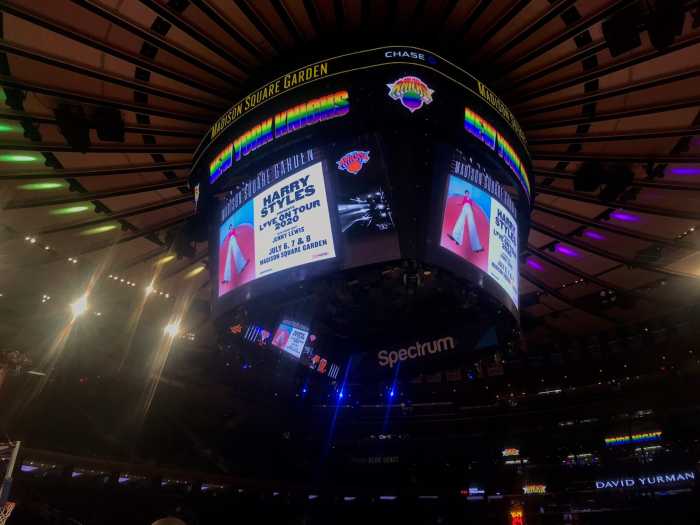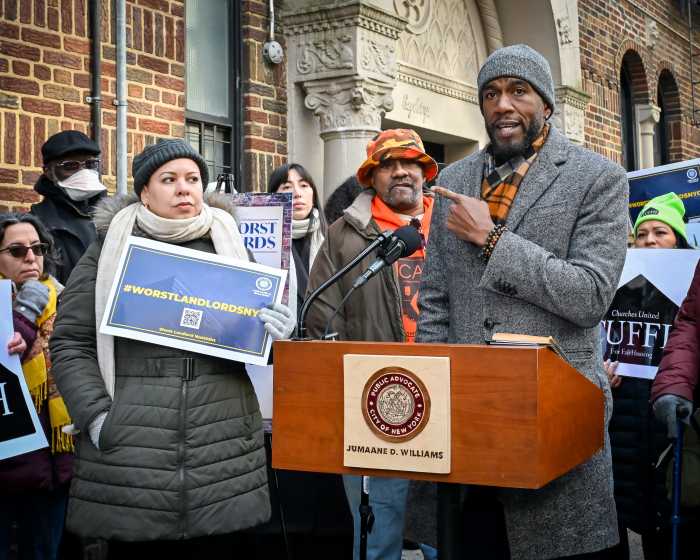“Miss Lonelyhearts” and “Cendrillon” alight at local conservatories
Surely in its centenary season Juilliard stands first among American conservatories for world premières presented, including works by George Antheil, Darius Milhaud, Virgil Thomson and Stephen Paulus. On April 26 a savvy audience—Ned Rorem, Marilyn Horne, Robert White, and more—welcomed the latest commissioned creation, Lowell Liebermann’s “Miss Lonelyhearts,” generally skillfully set to a shrewdly constructed J. D. McClatchy libretto based on Nathaniel West’s 1933 novel.
Juilliard graduate Liebermann found marked success with “The Portrait of Dorian Gray” (Monte Carlo, 1996); the openly gay composer’s calendar since has been largely orchestral and pianistic commissions. One noted gratefully how much more fluid and emotionally resonant his new score emerged than many recent American operas hedging their bets on—and drawing most of their power from—established “literary properties.” The deft orchestration lends coloristic variety to a fluid arioso construction offset—sometimes intertwined with—choral and spoken passages. Piano and cello writing showed particular eloquence.
Lessons have certainly been learned—from Berg, Britten, Prokofiev, and Shostakovich; perhaps even from Antheil, as a typewriter opens the score and telephones figure in it—but their application seem not so much derivative as aptly suited to the modernist ethos of the subject. “Miss Lonelyhearts” merits further stagings by adventurous ensembles.
Liebermann’s generation—which is mine—is doubtless the last routinely exposed at school to the laconically lurid, proto-film noir oeuvre of West (1903-40), one of the best mid-century American writers to drink deeply from the wellsprings of newly available Dostoevsky translations. Miss Lonelyhearts, a young male reporter assigned to an advice column by his amoral, sadistic editor Shrike, finds his inherent religious mania exacerbated by the Christ-like powers of compassion and forgiveness his desperate correspondents attribute to him. Near the start of both of the opera’s acts, we hear some heart-rending letters read, and—a fine stroke of Ken Cazan’s incisive staging—their readers remain virtual constants onstage—witnesses, supplicants and stagehands.
The hero’s peers, seen at workplace and local bar, are an abusive, violent, women-hating, homophobic lot. McClatchy and Cazan give apt prominence to the homoerotic component underpinning much of the anxiety and anger West’s male characters channel. All sexual relations–indeed all human relations—are fraught and corrupt here. Besides “Harvey Milk,” it is difficult to imagine an historically set American opera less likely to be produced in the Bible Belt.
Cazan’s sagacious blocking, the details of Peter Harrison’s set—especially the ever-growing crucifix in the hero’s bleak bedroom—and Martin Pakledinaz’ dead-on ‘30s costumes helped the capable young cast achieve a convincing sense of period. In the long, technically testing title role gifted tenor Jeremy Little projected enough underlying boyish appeal and tonal freshness to make explicable the others’ interest in him. Matthew Worth created a Mephistophelean Shrike, handling wide-ranging tessitura with aplomb. As his hard-edged nymphomaniac wife, Brenda Rae won cheers for fearlessly executing Elettra-meets-Fiakermilli coloratura during a funny/pathetic sex scene with Miss Lonelyhearts.
His disastrous involvement with another viciously predatory unfulfilled wife, Fay Doyle (trenchant mezzo Faith Sherman), married to a lame, foolish but honest proletarian, leads illogically but inexorably to the columnist’s death; Doyle jealously shoots Miss Lonelyhearts at the height of his ecstatically heightened self-identification with his Savior—a strangely redemptive scene, for all the squalor, and musically telling. The thrilling vocal promise and clarion diction of Peter Grimes-in-the-making Jeffrey Behrens as Doyle almost unbalanced the opera’s final scenes.
The one representative of a healthier order—the agent of the story’s one excursion into nature and transitory content—is Miss Lonelyhearts’ girlfriend Betty, whom he treats abysmally. The major keys and ascending lines Liebermann gives her reflect her comparative conventionality; soprano Katherine Whyte embodied and sang her pleasingly. The supporting ensemble offered skilled commitment, with striking mezzo Sasha Cooke a vocal standout. Singers, orchestra and composer alike were extremely lucky to have the assured services of Andreas Delfs in the pit.
Manhattan School of Music’s “Cendrillon” (April 28) marked the first major local staging in a long time of Massenet’s gorgeous piece—maybe the first since 1983, when City Opera mounted Toronto’s production for a superb cast—Faith Esham, Delia Wallis, Erie Mills, Maureen Forrester, and the late lamented William Parker.
MSM’s leading ladies were highly admirable. Yoosun Park’s winsomely pretty heroine and Renée Lenore Tatum’s convincingly masculine and aristocratic Prince fielded plangent timbres, good French style, and enough rapt passion for the wonderful music Massenet assigns them. (Had Richard Strauss heard this score when he wrote “Der Rossenkavalier”?)
Jessica Norris proved sensationally fresh and sparkling in the Fée’s coloratura flights. With an impressively rich mezzo, Krysty Swann—well—swanned amusingly through Mme. de la Haltière like a handsomely gowned Tosca playing Restoration comedy. Emily Albrink and Rebecca Jo Loeb sang brightly and accurately as her attractive but daffy daughters. Robert Stafford (Pandolfe) offered good humor if sometimes compromised pitch.
The school’s orchestra, if not as stellar as Juilliard’s—few are—played well under Laurent Pillot’s stylish baton. Chuck Hudson staged a few-frills but highly effective production, traditional except for some spirited Folie Bergères-style sprites who would have pleased old Massenet no end. Harry Feiner supplied a flexible, two-story leaf-patterned set, Daniel James Cole splendid costumes, and Carrie Nash apt choreography. Great fun.
David Shengold (shengold@yahoo.com) writes about opera for many venues.
gaycitynews.com


































